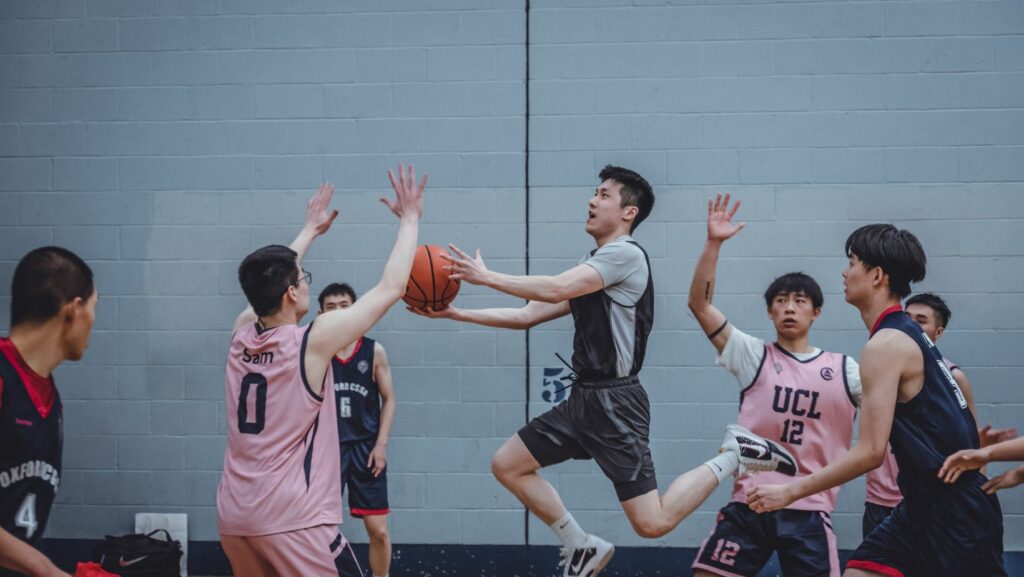Who is the Worst NBA Player of all Time

In the world of professional sports, the spotlight often shines brightest on those who achieve greatness. Yet, the NBA, with its rich history and diverse talent pool, also has its share of players who didn’t quite leave a positive mark. While fans and analysts frequently debate the greatest players of all time, the conversation about the league’s least successful athletes is equally intriguing.
Determining the “worst” NBA player isn’t as straightforward as it might seem. Factors like career statistics, on-court performance, and impact on their teams all play a part in this controversial discussion. Some players may have struggled due to lack of skill, while others faced challenges like injuries or tough competition that hindered their potential.
This exploration isn’t meant to belittle these athletes but to understand the complexities of a career in the NBA. It sheds light on the pressures and expectations that come with playing at such an elite level.
Understanding the Criteria for Evaluation

Evaluating the worst NBA player involves examining several key criteria. These criteria, which include statistics, team performance impact, and longevity, help determine a player’s overall contribution to the sport.
Statistics play a crucial role in evaluating NBA players. Analysts consider various metrics like points per game, shooting percentage, and turnovers per game. A player with consistently low statistical performance may be deemed among the least effective. For instance, a player averaging fewer than 5 points and 2 rebounds per game over multiple seasons might be considered for this evaluation.
Impact on Team Performance
A player’s influence on team performance is essential. If a player negatively affects a team’s success due to poor defensive skills or frequent mistakes during critical moments, this aspect is significant in their evaluation. Teams continuously assess how each player’s actions contribute to wins or losses, providing insight into their overall effectiveness on the court.
Longevity in the NBA
Longevity is a vital factor in assessing a player’s career. While a long tenure might suggest persistence, consistently poor performance over many years can indicate a player’s struggles to adapt or improve. Players with short stints in the league often miss opportunities to showcase and develop their skills, affecting their evaluation.
Notable Players Who Disappointed
Some players entered the NBA with high expectations but fell short. Factors such as draft position and salary can amplify scrutiny when performance doesn’t meet expectations.
Players Drafted High But Underperformed
Several players drafted as lottery picks didn’t achieve the anticipated success. Anthony Bennett, selected first overall in the 2013 NBA Draft, struggled with efficiency, averaging only 4.2 points per game across four seasons. Kwame Brown, another first overall pick in 2001, had a prolonged career but never averaged more than 10.9 points in a single season. These cases highlight how high draft picks can falter despite opportunities.
Highly Paid Players With Minimal Impact

Contracts in the NBA often reflect a player’s expected contribution, but some highly paid players delivered limited results. Timofey Mozgov, who signed a $64 million contract with the Los Angeles Lakers in 2016, failed to justify the investment, with averages of only 7.4 points and 4.9 rebounds per game for that season. Jerome James signed a $30 million contract with the New York Knicks in 2005 and then struggled to contribute, averaging merely 2.5 points per game over the length of his contract. These examples illustrate cases where financial commitments didn’t translate into on-court success.
Evaluating the worst NBA player is a multifaceted task that goes beyond mere statistics. Whole numbers like points per game and shooting percentages provide insights, the broader context of team dynamics and individual circumstances must be considered. Players like Anthony Bennett and Kwame Brown illustrate how high expectations can lead to intense scrutiny when not met. Similarly, Timofey Mozgov and Jerome James highlight the pressure of justifying substantial contracts. The careers of individuals such as Chris Dudley or Steve Novak emphasize how specific skill deficiencies can overshadow contributions. Ultimately, the narrative surrounding these players is shaped by a mix of performance data, public perception, and the inherent challenges of professional sports.

